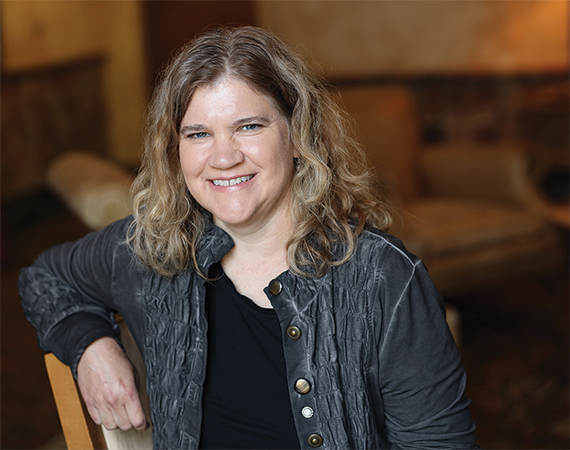When Enterprise Minnesota business growth consultant Amy Hubler helps manufacturers improve their bottom line through strategic marketing, she draws on 20 years of deep and diverse experiences in agribusiness, the airline industry, a digital marketing agency, and even the business side of public television.
“I’ve seen a lot,” she says. “Everywhere I’ve worked, I’ve learned something new and different. I think it makes me more effective in terms of my ability to help out our clients.”
“And the nice thing about being at Enterprise Minnesota is my ability to aggregate all that and share different stories from my background relevant to the situation at hand.” Hubler uses that experience to help manufacturers craft and implement data-driven strategies targeted to the company’s individual needs.
Bob Kill, president and CEO at Enterprise Minnesota, admires Hubler’s varied experiences. “Her tremendous diversity of background helps her connect in different ways to our small- and medium-sized clients. She talks about processes and techniques you might not see except at a large company.”
A new client recently reported to Kill that he found value in Hubler’s experience. “He was very impressed with some of the things she’s done in the past. He saw it as a level of credibility.” Hubler grew up in Eau Claire, Wisc., but followed her family roots back to the Twin Cities for college and never looked back. She studied business and Spanish at the University of St. Thomas. While working at Cargill, she received an MBA from the Carlson School of Management at the University of Minnesota. She joined Northwest Airlines and spent the next 10 years working in various marketing and communications roles, including international pricing, strategic alliances, and B2B sales.
Hubler says it was at the Carlson School of Management where she learned that “marketing is not a magic wand that can solve a company’s problems. It typically needs to be coupled with a sales strategy as well,” she says. “And those programs can take some time to develop. If you come to us when you’re in crisis mode, that’s not as ideal as coming to us before you’ve hit a crisis.”
Hubler’s data-driven consulting model views marketing through the lens of revenue growth.
“She’s very passionate about how marketing and revenue growth should drive new business, not just as continuous improvement,” Kill says. “She is thinking about it more broadly.”
Toward that end, she helps manufacturers develop strategies that address awareness, consideration, purchase, advocacy, or loyalty, emphasizing what is most urgent at the moment.
But the secret sauce to her success, she says, is helping clients analyze their customers through segments. This approach helps them realize the inadequacies of thinking that a one-size-fits-all approach will address the purchasing decisions of all customer groups. “It’s an ‘aha’ moment,” she says. “They often don’t think of their customers as being different from each other.”
And that’s a key part of company strategy: How do you interact with different types of customers differently?
The next step in Hubler’s segmenting analysis — and the next potential “aha” moment — encourages manufacturers to analyze the value of each segment. Which customer segments do you like, and which ones do you not like? Which ones do you want to keep doing business with? Which ones, perhaps, do you want to back away from?
Manufacturers are frequently surprised, she says, when the customer analysis reveals that a perceived prime customer doesn’t deliver optimal margins. “They can find that they spend way too much staff time and effort to care for customers who are not worth what that customer segment generates for them.” Marketing experts frequently call those customers “noise,” Hubler says. “It’s kind of noise in the background that distracts you from focusing on a different customer segment that will help you grow.”
Manufacturers also benefit when they view marketing strategy as data-driven work. Is there sales growth? Is there increased website traffic? Is that being converted to sales?
Hubler says manufacturers should consider applying the concepts of continuous improvement. Typically, that is applied to the production floor, but it also applies to marketing. “You try some things out, and if they don’t work, you make some adjustments, measure them, and move forward.”
It always works. “Anytime you work with someone from the outside who can pull from their experience to help you develop a strategy and a plan and then help you execute that plan by reviewing results and seeing what’s working, it’s going to work. And if it doesn’t work, we can make some adjustments.”
Return to the Fall 2024 issue of Enterprise Minnesota® magazine.


